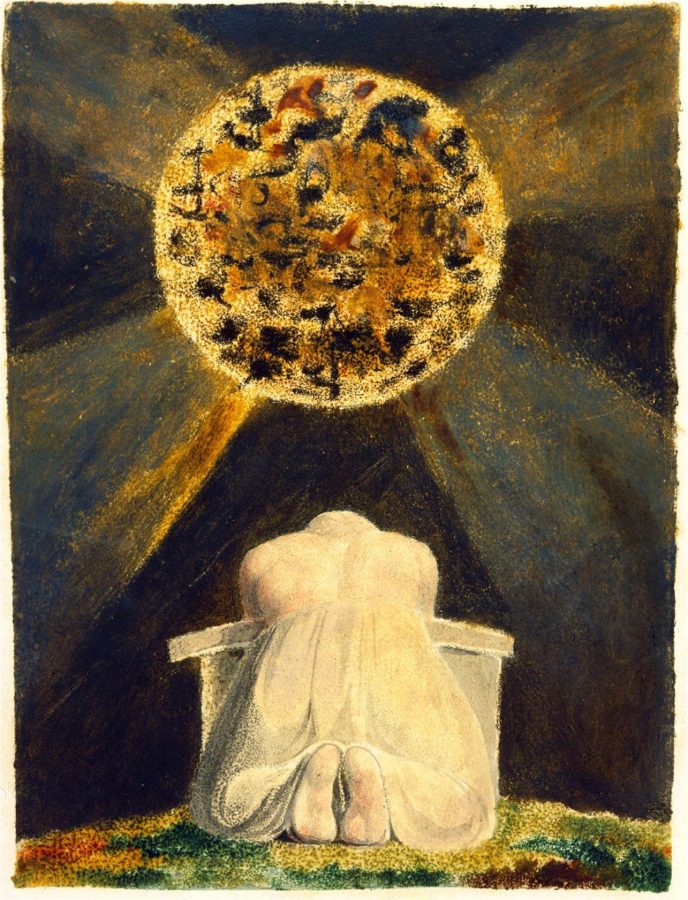Batter my heart - a close reading of John Donne's Holy Sonnet XIV
Event Details
William Blake, The Song of Los, commons.wikimedia.org The Italian poetic verse
Event Details

The Italian poetic verse form, il sonetto (the sonnet), was introduced into England in the mid-16th century and popularised by such sonneteers as Sir Philip Sidney and William Shakespeare. Fired in the crucible of love-sick writers’ imaginations, sonnets were often a clever combination of self-aggrandisement, self-abasement and melodramatic expressions of love. The poetic form—fourteen lines, usually with a set meter and rhyme scheme—has endured across five centuries and though it has transformed and evolved, we still generally think of sonnets as poems expressing an agonised lover’s feelings about their unattainable beloved.
Enter John Donne (1572-1631), a contemporary of Shakespeare, whose sonnets, at first encounter, seem startlingly unlike the Bard of Avon’s. Donne’s sonnets exhibit a deep devotion not to an earthly lover but a spiritual one—God, or the Holy Trinity (father, son, and holy spirit)—and they explore such themes as death, judgement and repentance. Holy Sonnet XIV recently received revived attention when one line—‘Batter my heart, three-person’d God’—briefly featured in Christopher Nolan’s critically acclaimed film Oppenheimer. One of Donne’s most enduring sonnets, Batter my heart continues to be prized by religious and non-religious readers alike. What is it about this sacred poem that it resonates over 400 years later and why does it ring true with secular readers? Or does it? In this session, we will consider the speaker’s bracing, paradoxical outpouring of religious passion and what it might mean to us today.
STUDY DETAILS:
- Single session study on Zoom led by Julie Sutherland
- Friday 3 November 2023, 5.00-7.00 pm (UK)
- The complete poem can be read on the Poetry Foundation website and there are many collections of John Donne’s poems available from booksellers.
- £30 including introductory notes
Organizer
Time
3 November 2023 5:00 pm - 7:00 pm(GMT+00:00)
Location
VIRTUAL - VIA ZOOM
